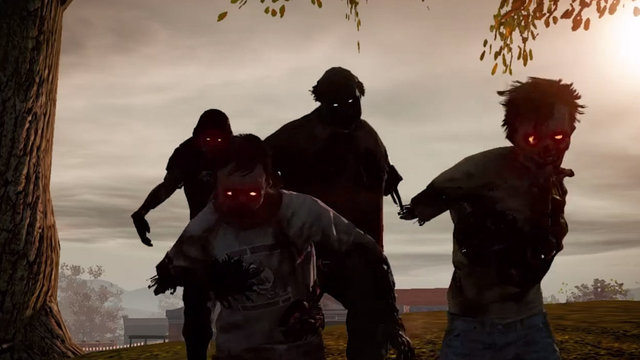Mars: War Logs review (XBLA)
Mars: War Logs was developed by Spiders Studios and published by Focus Home Interactive. It was released July 26, 2013 for 1,200 MSP. A copy was provided for review purposes.
Mars: War Logs is a sci-fi/action RPG that is unmistakably, unabashedly cut from the same basic template used for Knights of the Old Republic, Jade Empire, and Mass Effect. The main character is a war veteran with a dark, mysterious, or troubled past. He or she travels with a few companions who provide assistance, special abilities, additional information, and so on. The villain is either an oppressive fascist regime or someone who harbors deep personal resentment for the hero. Throughout the journey, the party is faced with moral dilemmas as they seek to resolve primary tasks and sub-quests, with decision options usually broken down into a binary GOOD or EVIL choice and little in-between. There is an equipment upgrade system, where the player uses spare materials to enhance weapons and armor. The party gains experience points to level up, and skill points can be applied to unlock advanced abilities, feats, and class perks. There are romance options available, depending on the hero’s gender, demeanor, and rapport with his or her companions. This game format is very familiar to anyone who has played any high-profile console RPGs in the past ten years, and even more so for those running the original Baldur’s Gate on PC in the late 1990’s.
So let’s just get this out of the way, rather than meandering around it: if someone is interested in playing a sci-fi/action/open-ended WRPG, they have a ton of options available from half a dozen extremely prolific developers, some of whom started the genre. Many of those options are incredible adventures, spanning entire galaxies, with memorable characters, brilliant dialogue, breathtaking landscapes, and a few of them have dramatically pushed the genre forward in big ways. The market is immensely crowded, and Mars: War Logs is placed in a very tough spot because of that. Priced between $15 and $20, it is clearly aimed to be a mid-priced alternative to mega-funded RPGs from the likes of BioWare and Obsidian, and wants to be a Mass Effect that doesn’t cost $60 at launch. But the size of the budget and price of the game are but small parts of a much larger picture, so how does Mars: War Logs measure up?
 13 years ago
13 years ago
Rumors swirling that Microsoft will announce indie self-publishing *updated*
Update 2: In a second statement released to Kotaku today, Xbox Chief Product Officer Marc Whitten confirmed an earlier report by Game Informer that while all Xbox Ones will …
Read More
 13 years ago
13 years ago
Lionhead Studios on Microsoft’s Xbox One Indie publishing policy
Yesterday, in an interview with Official Xbox Magazine, Lionhead Studios’ Creative Director, Gary Carr, spoke of Microsoft’s commitment to courting indie developers on the Xbox One. He describes Microsoft as “very passionate” about building strong relationships with Indies, noting that the gaming business’ future is in jeopardy without independent developers.
Gary adds that while the big players like Sony, Microsoft, and Amazon “kind of hold it all together,” independent development is a major force behind innovation, and both big and small players alike can co-exist. Carr’s comments regarding an upcoming presentation from Phil Harrison could be interpreted as a hint that Microsoft may be re-evaluating its approach to publishing on Xbox One.
In a separate interview, Phil Spencer also discussed some of the challenges faced by both the Xbox 360 and Xbox One with regards to game publishing. The ease of development and publishing for the Xbox 360 has been both a blessing and a curse for the console. There have been some immensely high-profile, high-quality releases from a number of independent developers, but much of the Indie marketplace has also transformed into a dumping ground for woefully mediocre titles and clones of clones of clones.
At this point, so far into the console’s lifecycle, it can be difficult to reliably identify Indie games worth playing, and this has led to a significant shift in Microsoft’s publishing strategy for the Xbox One. Thankfully, Phil Spencer is aware of the parallels to Apple’s heavily-curated, closed ecosystem, and addresses them to an extent.
However, the goals are still potentially antithetical to each other; in order to attract good developers who create great content, a market cannot or should not heavily restrict access to its publishing tools. Conversely, a completely open market, where everyone can publish nearly anything, can also lead to a weakened content ecosystem, suffering from the same quality bloat seen in the Xbox 360’s Indie marketplace.
 13 years ago
13 years ago
New details about State of Decay’s upcoming Sandbox Mode
In a post on Undead Labs’ official site, Geoffrey discusses new details about how State of Decay‘s Sandbox Mode may operate. He describes the team’s core, guiding philosophy in crafting …
Read More
Flashback Remake – A Classic, Reimagined
Earlier today, via its YouTube channel, Ubisoft released a short featurette on its Flashback remake, set for release on August 21 as an XBLA Summer of Arcade title.
In …
Read More


